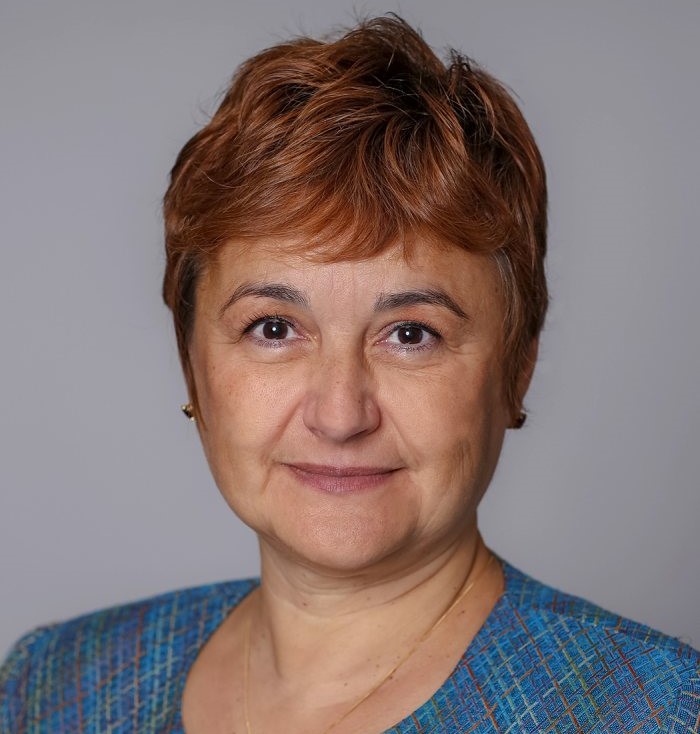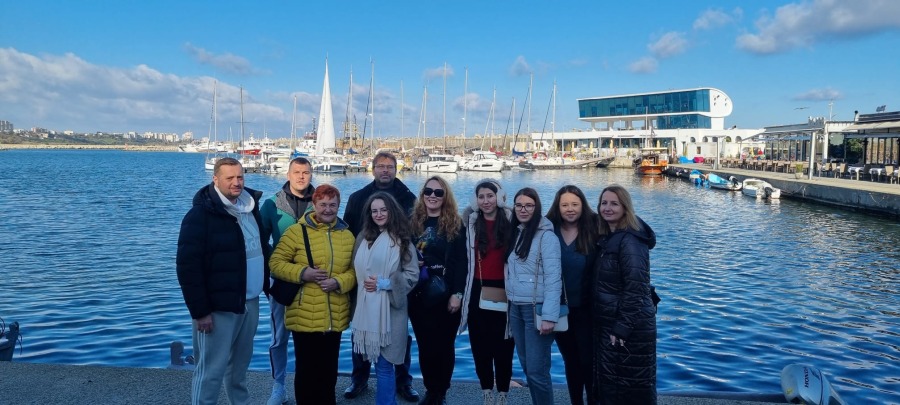News
Interview with Mihaela Dănălache, Managing Partner Ensight Finance: A reduction in labor taxation would boost the business environment

How did your journey in accounting and finance begin? What inspired you to choose this path?
I enjoy working with numbers. Accounting attracted me through the idea of a constant balance between a company’s “assets” and “liabilities,” regardless of decisions made and transactions conducted. It helped me understand what lies behind the numbers in financial statements and how financial indicators change following each transaction.
I also found the connection between accounting and taxation extremely interesting, particularly the different accounting and tax treatments of the same transaction. I understood how the taxable result differs from the accounting result and how companies can benefit from the tax incentives provided by law.
Once I deciphered the intricacies of accounting and taxation, I became increasingly attracted to financial consultancy, particularly in various types of corporate “transformation projects.” Examples include reorganizations (mergers, acquisitions, restructuring financial departments), optimizing financial processes within companies, and implementing integrated IT systems (ERP).
In the consulting projects I participated in, both in Romania and abroad, I made full use of my accounting and taxation knowledge and gained expertise in project management – constant project phase monitoring, team communication, and regular reporting to the client on results, issues, and next steps.
This personal professional journey is reflected in the types of missions carried out by Ensight Finance SRL, the company where I have been Managing Partner since 2005. Ensight Finance started by offering accounting, taxation, and payroll services, later expanding into financial consulting.
How important is the team in delivering high-quality professional services?
In this field, people are the most important asset. The strength of the team is the engine of the business. The Ensight team includes highly trained professionals capable of addressing all client requests within their area of expertise.
I’m proud that some of my colleagues have been working at Ensight for many years: Corina started her career here nearly 19 years ago, Florin has been with us for 7 years, Alexandru and Tatiana for 4 years, and the list goes on.
I know it hasn’t been easy for them, and I thank them. The work is demanding, deadlines are strict, and multiple tasks must be handled simultaneously for different clients within the same timeframe.
I’m also proud that over the years, we have trained hundreds of young professionals. Some have chosen entrepreneurship, and we continue to collaborate on various projects.
This November, we celebrate 20 years since Ensight Finance was founded, a clear testament to the quality of services delivered by an elite team. Over the years, we’ve completed numerous successful projects both in Romania and abroad (Germany, Moldova, Bulgaria, Greece, Turkey, Hungary).
On this anniversary, I want to thank the Ensight team and our clients. We wouldn’t have succeeded without each and every one of you, and we are deeply grateful.

You are a member of CECCAR (Body of Expert and Licensed Accountants of Romania), CCF (Chamber of Tax Consultants), and CAFR (Chamber of Financial Auditors of Romania). How important is it to attend the professional training courses organized by these professional bodies?
I believe you cannot practice this profession unless you stay constantly informed. As we know, Romanian legislation changes frequently, more often than we would like. In this context, the professional training courses organized by each of these professional organizations are extremely important.
The courses are taught by domain experts who share both current interpretations of amended legal texts and practical application cases. This information is very useful in our day-to-day work.
What are the values that guide your business and professional conduct?
Ensight’s values are listed below:
- Energy: We make things happen. Every day is a new opportunity. We’re always ready to take on a new challenge, a new responsibility.
- Perseverance: We are dedicated to our clients’ success. We are determined to make a difference and continuously raise the bar for performance in consulting. We are passionate about what we do and confident in our capabilities.
- Fair Play: We say what we do and do what we say. We are always fair and impartial. We always deliver on time, according to agreements with our partners.
- Curiosity: Our constant drive to know more is the source of our value and a key driver of performance. Through smart processes and the experience of Ensight’s people, we continually harness knowledge.
- Camaraderie: Among ourselves, we foster a climate of trust, growth, and partnership.
How valuable has the know-how of the WTS Global network been for Ensight Finance?
In 2007, Ensight Finance began collaborating with the international tax advisory network WTS Global, founded in Germany and present on all continents. This partnership has given us the opportunity to work on complex international projects. The successful collaboration with WTS Global continues to this day.
Within the WTS Global network, Ensight Finance provides tax consultancy for the Romanian entities of multinational companies, as well as tax representation for non-resident companies that need to register for tax purposes in Romania. As part of an international network, we work with WTS Global experts from various countries to exchange knowledge and provide Romanian clients with access to specialized support in their international projects.
The collaboration with WTS Global has supported our business growth by promoting a relationship of trust and partnership among network members.
How have you observed the evolution of technology and legislative requirements in accounting and taxation throughout your career?
This is a great question for me, as I’m part of a generation that witnessed radical technological changes in a relatively short period.
When I tell young people about how I started in this profession, I’m amused by their surprised, sceptical looks. They can’t imagine doing accounting without computers or software. But it was the only option at the time. Only large enterprises had so-called “data processing centres,” where accountants rarely had access, as data was input by operators.
I began my career in 1987 at a small state-owned enterprise without such a data center. I would prepare trial balances manually, using standard “Trial Balance” forms and centralize data from supporting documents grouped by category using “cumulative documents” before entering them into the general ledger. Manually recording each document (as we do now) would have made things far more complicated. The trial balance columns were added manually using ribbon calculators, allowing you to review totals if the balance didn’t reconcile. Even minor differences required error checks. That’s how I learned that patience and attention to detail are essential in this profession.
I also worked at a state company with decentralized accounting at the branch level. My responsibility was to manually consolidate all the trial balances into a single report. I used cumulative documents to add up the many rows and columns. Sometimes the columns weren’t enough, so we would tape additional forms together to complete the consolidation.
These details matter when discussing technological progress in our field, where we started and where we are now. My first real contact with “technology” was around 1993–1994, when the state company I worked for invested in a small data center. As noted, accountants didn’t use the system directly, they sent manually prepared entries to operators and received printouts for verification. Corrections were again handled by operators. Still, the major benefit was that trial balances and ledgers were automatically generated and consolidated.
I first used a laptop for accounting in 1995 when I joined a Big Four firm. It was a radical change, but my experience with manual accounting helped immensely, I could spot inconsistencies much faster.
Beyond how work was done, relationships with tax authorities also evolved. I remember the long lines we had to wait in at the tax offices to physically submit financial statements and tax returns.
Today, we communicate through SPV (virtual private space) and use artificial intelligence in our daily work.
Regarding legal requirements, I believe that authorities are increasingly shifting responsibilities to companies. Administrative costs to comply with legal demands rise every year. In taxation, requirements like SAF-T, e-Invoicing, e-VAT, e-Transport, and other “e-” tools significantly increase administrative and IT burdens. These come on top of compliance requirements in labour law, GDPR, and anti-money laundering legislation, all adding to administrative effort and IT costs.
What qualities and skills should an entrepreneur in accounting and taxation have when starting a business?
First and foremost, an entrepreneur in this field must be highly skilled and able to control the quality of services and constantly monitor risks assumed when serving clients. The risk increases in direct proportion to the growing number of accounting and tax compliance obligations.
As mentioned earlier, people are the greatest asset in this field. Therefore, the entrepreneur must know how to work with people, listen to them, guide them, and use each person’s strengths effectively within the team.
The field already provides the advantage of understanding all financial mechanisms and levers in a company, a crucial asset for any business owner. I’ve seen many businesses in other industries start with great ideas and enthusiasm, but fail due to a lack of understanding of basic financial principles. You can’t manage a business without at least minimal financial knowledge. Only then can you understand, for example, why you have high profits on paper but no cash in your account, or why you pay profit tax despite reporting accounting losses, and what to do to improve your company’s financial health.
Other necessary qualities are those of any entrepreneur: take responsibility for decisions and learn from mistakes, be courageous in exploring new fields and implementing change, stay energetic and involved, have patience, and don’t expect major results “overnight” and don’t give up at the first obstacle.
Which economic sectors do your clients come from, and in what geographic areas do they operate?
Ensight’s clients operate in the following sectors: IT services, industrial services, real estate, industrial manufacturing, trade, green energy, maritime transport, advertising, tourism, and agriculture.
Geographically, we work with companies from Romania, Germany, Italy, Hungary, Austria, Belgium, France, Israel, the Netherlands, Denmark, Norway, Estonia, the UK, and the USA.
What are the biggest challenges you currently face?
The biggest challenge is the constant changes in tax legislation. We hardly finish assimilating some changes before they are amended or cancelled. Each change must be discussed with clients to evaluate what adjustments are required for IT systems and work procedures.
Like most industries, we also face challenges in recruiting and developing young talent. Due to recent rapid digitalization, this profession has become more complex. Young people want to specialize in one area to learn and adapt quickly. However, the professional services sector also needs “generalists”, people with broad knowledge in both accounting and tax who can work under pressure.
Currently, over 16,000 normative acts are in force in Romania. How do you view the frequent amendments to the Fiscal Code made by recent governments?
Romania’s primary and secondary legislation is indeed massive: codes, methodological norms, implementing orders, circulars, etc. We’re talking about tens of thousands of pages of rules and clarifications, difficult to interpret and correlate. Sometimes, even a single misplaced comma changes the entire meaning. To keep up, tax consultants must know general rules for all taxes (or know where to find the relevant laws), though most choose to specialize in VAT, excise, profit tax, etc.
Beyond the difficulty of keeping up with frequent changes, certain consulting assignments have become significantly more complex. For example, due diligence reviews for past 3–5 years must consider legislation from each specific year or even month, which is no simple task.
As noted earlier, frequent changes to the Fiscal Code create serious issues for companies and potential investors. The unpredictability of Romania’s tax environment undermines investor confidence and drives them to other countries.
Existing companies must comply with new rules, incurring additional costs for specialized tax advice, IT system customizations and testing, and new personnel to take on added responsibilities.
The continuous cost pressure, combined with uncertainty, has led many companies to exit Romania. Over the past year, we have assisted several companies in shutting down their Romanian operations and relocating elsewhere.
How do you assess the current level of taxation in Romania? Which areas could see tax cuts, and which have strong collection potential?
Romania’s tax rates are relatively in line with neighbouring countries, except for labour taxation. I believe reducing labour taxes would stimulate the business environment.
However, such a reduction is only feasible if tax collection improves, and tax evasion decreases. To my knowledge, these are top priorities for the authorities at present.
What should the government do to modernize public administration, reduce bureaucracy, and support the business environment?
Important steps have been taken toward ANAF’s digitalization and reducing processing and response times. However, compliance requirements have significantly increased recently, burdening companies.
I think the approach needs to shift, meaning that ANAF should focus more on tax evaders and less on compliant taxpayers. Recently, new reporting obligations were introduced for intermediary firms to help identify “potential evaders” in online trade and ridesharing. Once again, companies bear the reporting burden (e.g., forms 395, 396, 397).
A mindset change is also needed. ANAF inspectors tend to see every taxpayer as a “potential criminal.” Companies are penalized mainly for procedural or document-related issues, not substantive ones. That said, communication with ANAF has improved in recent years. Their efforts for better collaboration are visible, though there is still room for improvement.
Modernizing administration also means having clear, unified procedures nationwide. In practice, we often see differences in how various tax offices operate, even between districts in Bucharest or between Bucharest and the rest of the country. Though the legislation is the same, each office has its own procedures (e.g., different required documents or issuance processes for the same type of request).
Measures to support the business environment must also include stability and predictability in taxation. Right now, the impression is that the government is “experimenting” with various tax measures to boost revenues, without thoroughly assessing the full impact. If a measure proves ineffective or unfeasible, it is repealed, only to be reintroduced later (e.g., the “pillar tax”).
One positive note is that the flat tax rate and VAT rates have remained unchanged, showing the government’s effort to maintain stability in this regard.
How do you balance your personal and professional life? What brings you joy outside of your career?
Achieving work-life balance is one of the hardest things for any entrepreneur, especially women. I would not have succeeded in business without the support and understanding of my family.
My career involved many late nights, weekends, and frequent travel, both domestically and abroad. I completed MBA studies in the UK and later in France at age of 35, while raising two young children. I didn’t always make it to parent-teacher meetings or school events, but I knew my husband was there every time.
Outside of work, I enjoy spending time with my granddaughter, caring for plants, and traveling.
I’m a happy grandmother, and every visit with Victoria fills me with joy.
I also find peace in gardening, planting and nurturing crops. We have a small greenhouse at the countryside where I sometimes spend weekends tending the plants.
And when I’m feeling drained, I usually plan a trip. I love exploring new places and learning about local traditions.
Back to News